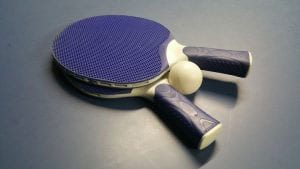According to a story from Parkinson’s News Today, the Vercise system, developed by Boston Scientific as a method of deep brain stimulation, was able to provide benefit to Parkinson’s disease patients for over a year in a recent trial. Vercise was first approved for treating the disease in 2017. This was the first study testing Vercise deep brain stimulation using a double-blind study design (in which the doctors and patients don’t know who is getting the treatment).
About Parkinson’s Disease
Parkinson’s disease is a type of long term, progressive, degenerative illness that affects the central nervous system. Symptoms tend to develop over a period of years and primarily affect the movement ability and mental state of the patient. The cause of Parkinson’s disease remains a mystery, although there are a number of risk factors that have been identified. These factors include head injuries, pesticide exposure, and certain genetic variants and mutations. About 15 percent of patients have a close relative with the disease, suggesting some genetic connection. Symptoms include slowed movements, poor coordination, trouble walking, shaking, stiffness, abnormal posture, depression, anxiety, inhibited thinking, hallucinations, and dementia. Treatment may involve a number of medications, rehabilitation, and surgical operations. Survival rate varies, but most patients survive around a decade after getting diagnosed. To learn more about Parkinson’s disease, click here.
About Deep Brain Stimulation and the Vercise System
Deep brain stimulation is a surgical procedure that treats the symptoms of Parkinson’s by attaching a small device similar to a pacemaker to the brain that sends small electrical impulses to certain parts of the organ. The effectiveness of this method has been demonstrated in trials, though results are widely varied. The Vercise system acts on a part of the brain called the subthalamic nucleus, which is over-active in patients living with the disease. The system uses multiple independent contact current-controlled (MICC) technology.
About The Study
The study evaluated a total of 160 patients. These patients were all experiencing symptoms despite using the medication levodopa. The results showed that patients saw a six hour increase in their “on” periods (when medication is still effective) over the year of treatment, and 51 percent saw improved motor symptoms. The system also demonstrated a good safety profile, with only four patients developing serious side effects.
Overall, the findings helped reinforce prior positive findings for the Vercise system; the authors concluded that continued study of systems using MICC technology will be needed to gain a more complete assessment of its impact.
Read more about the study here.








